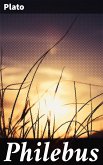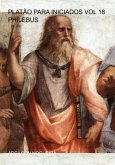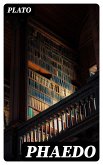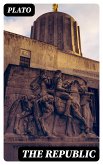In "Philebus," Plato engages in profound philosophical discourse on the nature of pleasure and knowledge through a dialectical conversation between Socrates and his interlocutors. The dialogue deftly intertwines ethics, metaphysics, and epistemology, ultimately questioning what constitutes the highest good for humans. Through its intricate structure, "Philebus" reflects Plato's characteristic style, employing an interplay of distinct voices and rigorous logical arguments set against the backdrop of the Socratic method. This work stands within the context of Plato's broader investigation of the soul and happiness, revealing his evolving thoughts on the relationship between reason and desire. Plato, a pivotal figure of Western philosophy, was profoundly influenced by the intellectual currents of his time, including sophism and the burgeoning interest in empiricism. His educational background, which included mentorship under Socrates, profoundly shaped his philosophical inquiries into ethics and human well-being. "Philebus" emerges as a seminal text that captures Plato's contemplations on the implications of pleasure and its role in a well-lived life, highlighting the philosophical tensions of his era. This text is essential reading for scholars and students of philosophy, as it not only embodies the intricacies of Plato's thought but also provokes critical reflection on contemporary ethical dilemmas. "Philebus" transcends its historical context, offering valuable insights into the ongoing discourse surrounding pleasure, knowledge, and the pursuit of the good life.
Dieser Download kann aus rechtlichen Gründen nur mit Rechnungsadresse in A, B, BG, CY, CZ, D, DK, EW, E, FIN, F, GR, H, IRL, I, LT, L, LR, M, NL, PL, P, R, S, SLO, SK ausgeliefert werden.









